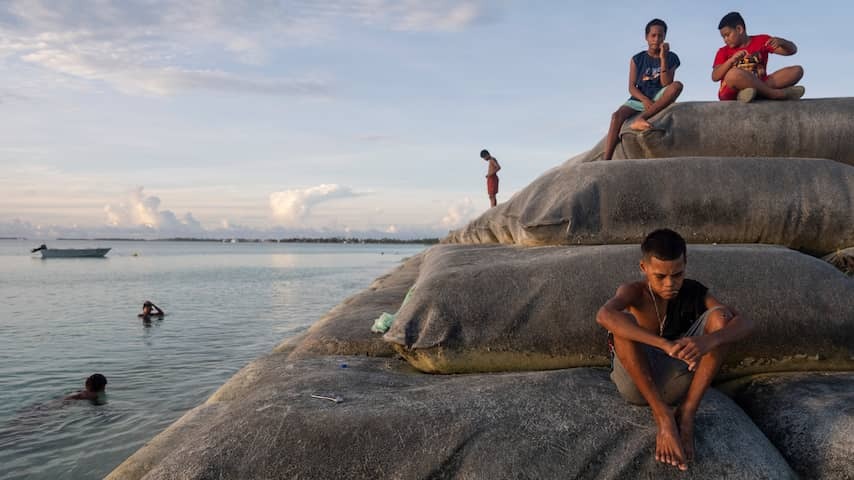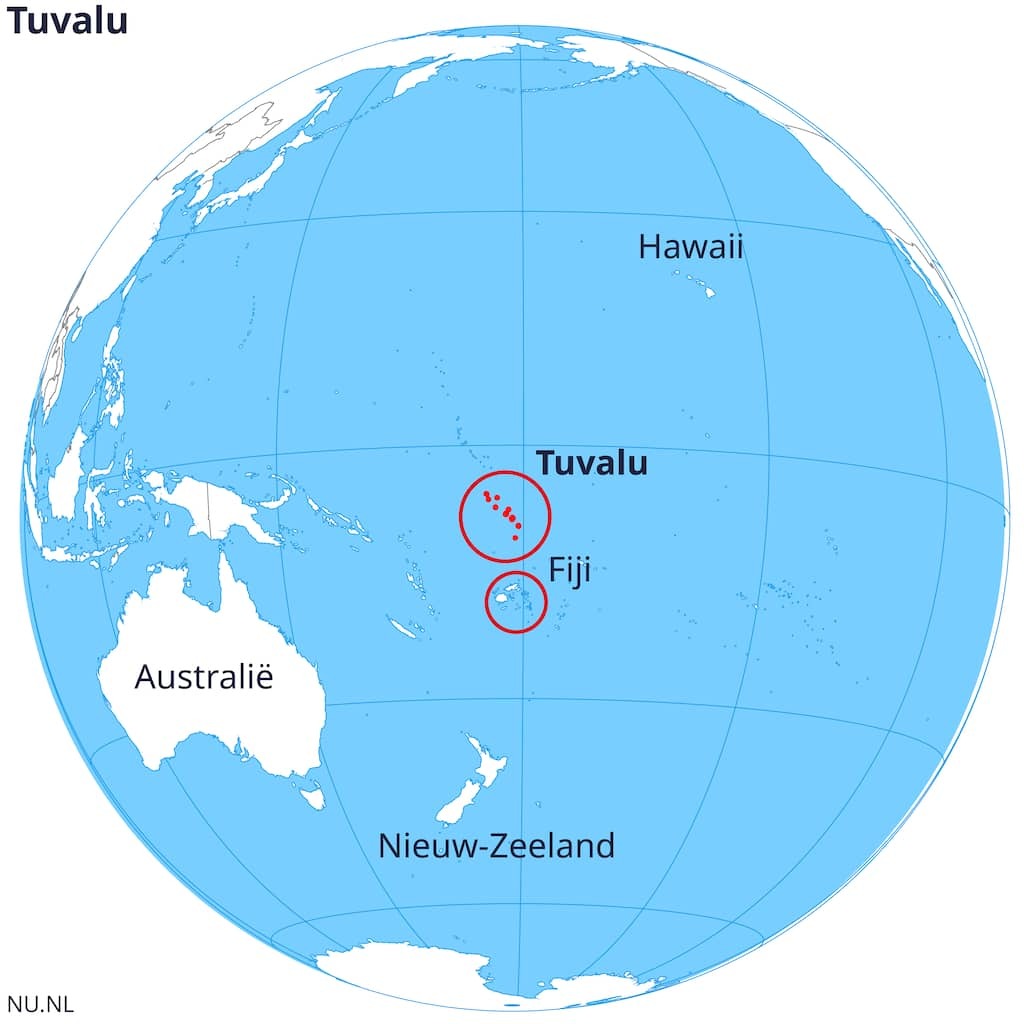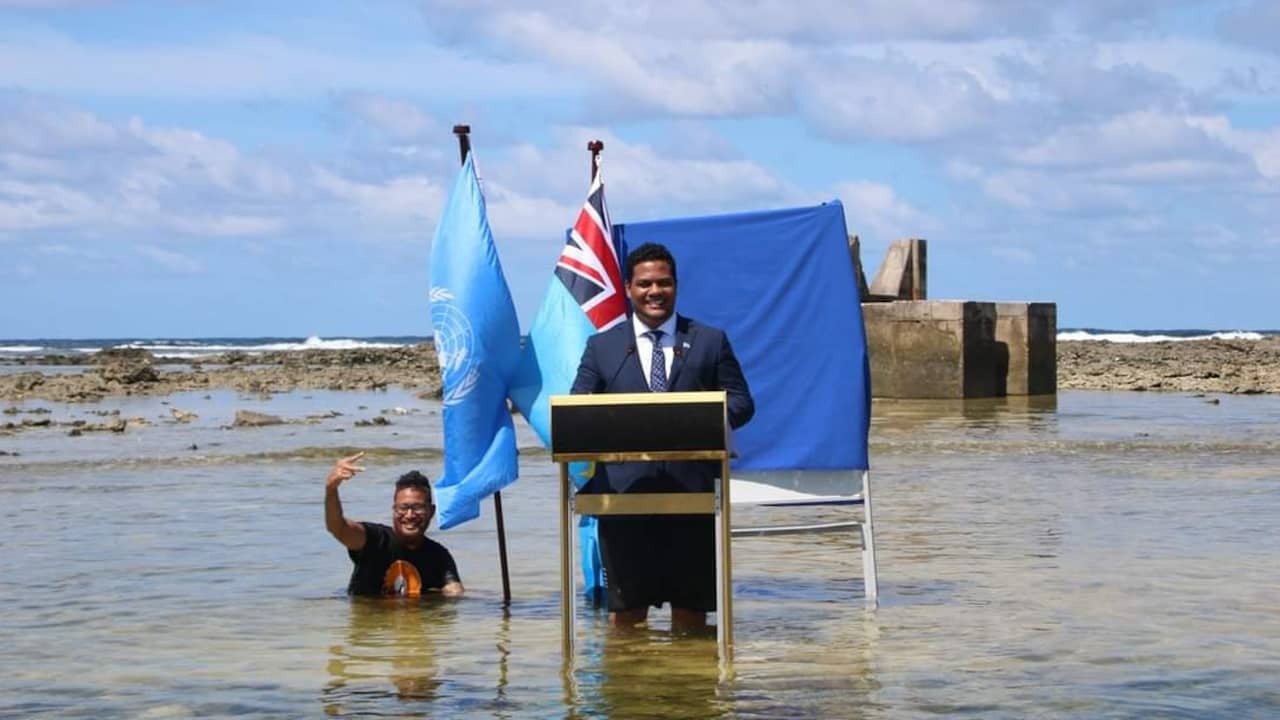
For the first time, people have been granted a climate visa. A group of residents from Tuvalu, one of the smallest countries in the world, is allowed to emigrate to Australia with it. The island state is very vulnerable to climate change and is “disappearing bit by bit,” according to residents and scientists.
“Science shows that climate change is more than environmental problems. It threatens our entire way of life,” Tuvaluan Lilly Teafa tells NU.nl. “Everything is affected by this crisis: our lifestyle, our physical and mental health, and our culture.”
Over the past three decades, the sea level in Tuvalu has risen by 15 centimeters, much faster than the global average. The increase will accelerate in the coming years: the island state is slowly ‘drowning.’ Houses on the coastline are becoming uninhabitable, and agriculture and freshwater supply are being affected by the salty seawater.
In addition, increasingly severe cyclones are raging over the islands. And the rising temperature poses health risks for the population, who are used to working and living outdoors.
Tuvalu is located 4,000 kilometers from the Australian east coast in the Pacific Ocean, as shown in the image below. It consists of eight small ring-shaped islands (atolls) and has a coastline of about 24 kilometers. At its highest point, the land is only a few meters above sea level.

Almost nine thousand applications among ten thousand residents
All this is the reason for Australia to issue special climate visas to residents of Tuvalu. The two countries have had good diplomatic relations for years. In 2024, they concluded a treaty in which Australia promised to protect the island state against natural disasters and military threats. The treaty also stipulates that Tuvaluans can move to Australia temporarily or permanently.
280 Tuvaluans have been drawn this week for such a visa, which will now be granted every year. According to the Australian consulate, 8,750 people had applied. Striking, since there are a total of about ten thousand people living there.
29-year-old Teafa was born and raised in Tuvalu and works for an NGO for youth. She says that her uncle, a few aunts and several friends had applied, and many of them have also received the visa. She herself has not claimed the visa. “I will stay in Tuvalu as long as I can.”
Even with 1.5 degrees warming gigantic losses
But like most people in Tuvalu, Teafa knows that her island is disappearing, even if it is happening “bit by bit”. If the sea level rise continues at the current rate, scientists say that Tuvalu could be swallowed by the ocean within the next fifty years. When and how quickly that scenario unfolds depends on how much CO2 the world continues to emit in the coming years.
Researchers wrote in 2023 in Nature that even with 1.5 degrees of warming, small islands suffer gigantic losses and can become uninhabitable. At the moment, the earth is heading towards almost double the critical limit: 2.7 degrees of warming.
“Of all the elements in the earth system, the temperature in the ocean is rising the fastest,” climate scientist Elisabeth Holland tells NU.nl. The American worked for years for the university in Fiji and contributed to the reports of the UN climate panel IPCC. “We know that the sea level rises with the temperature in the sea.”

Climate visa as ‘last resort’
Tuvalu is doing a lot to make the country resilient to those extreme situations. This includes, for example, coastal reinforcement, raising land, building water tanks for fresh water, growing stronger crops and education about climate change.
“Climate adaptation is extremely expensive for island states such as Tuvalu, with small economies and few resources,” says scientist Shobha Maharaj, specialized in climate change on small islands. “You can hardly adapt, because you are always in recovery mode from the previous hurricane or flood.” The available international funds and climate financing are often not enough.
“Emigrating with a climate visa is then the last resort,” she says. “Most people do not want to leave, but you go if you have no other choice for your children and grandchildren.” In this way, the people who have contributed the least to the climate crisis pay the highest price for it, Maharaj argues.
Historical climate case offers hope for Tuvalu
Can Tuvalu still be saved? If the earth warms less quickly, sea level rise will be slowed down, the scientists say. “Less CO2 emissions means more time,” says Maharaj. That time can be used for more adaptation measures.
The experts link the fate of Tuvalu to the historical ruling in the climate case of late July, once started by the island state Vanuatu. In it, the judges determined that countries have an obligation to protect the climate. That creates a legal basis that countries such as Tuvalu can use to enforce more climate action.
However, it remains to be seen what happens with it for the time being. The ruling at least helps Teafa to keep hope regarding the future of her country. “It is time that world leaders start serious climate talks.”
 0:32
0:32